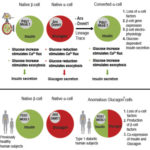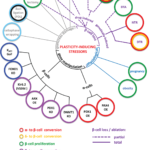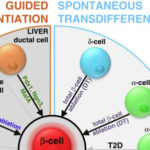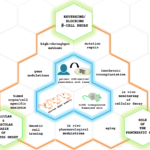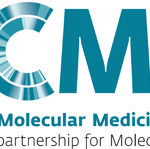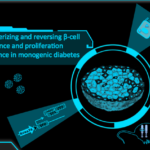
Diabetes mellitus is a group of metabolic diseases defined by high blood sugar values caused by the inability of the body to produce and/or use insulin. All forms of diabetes are ultimately characterized by a decrease in the number of functional insulin-producing cells (β-cells), hence a cure for insulin-dependent diabetes types will require their regeneration or replacement. Generally, the most efficient regenerative strategies are the ones involving cell self-renewal capacity. Nevertheless, in mammals, the β-cell proliferative capacity is very low after birth and decreases even further with age. The overall aim of this proposal is to elucidate and reverse the molecular age-switch controlling the gradual impairment of β-cell self-renewal potential by using two murine models of monogenic diabetes.
Read more →
